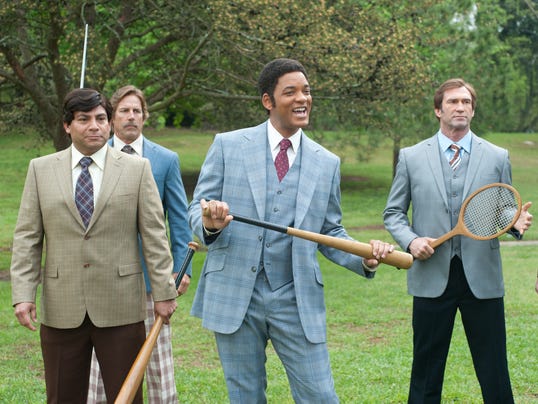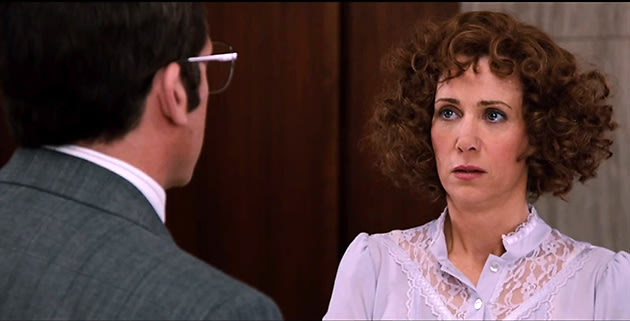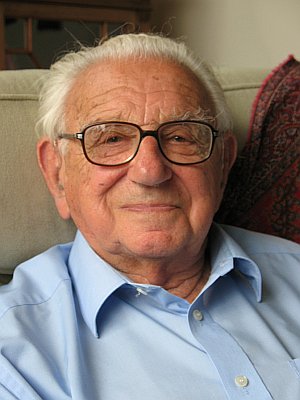With award nominations coming in all over the shot and an avid interest in slavery, I knew that '12 Years A Slave' was going to be a great film for me. It wasn't just the story however, that kept me hooked. Some clever direction and some great cinematography, exceeded all my expectations of the film and actually, allowed me to like it for different reasons as to those I expected prior.
Solomon Northup is a violinist, a free man, who lives with his wife, son and daughter in New York. He is offered a job as a musician in a travelling circus troop by two white men. As he celebrates his acceptance of the role, he drinks until the early hours with the two men and wakes up only the next day, bound in chains in a cell. Overnight he has become a slave. He is smuggled onto a ship, sold at auction and shifted from slave owner to slave owner for twelve years. Twelve years of longing, despair and desolation. And yet, he did not give up trying, as the film transpires.
 |
| altfg.com |
One thing I noticed, was how director, Steve McQueen lingered on certain shots. For example, we are forced not only to witness the devastating circumstances that Solomon Northup finds himself thrown into, we are also forced to witness his wholehearted pain. The camera lingers on all shots that follow an emotional revelation, or the crushing of hope, or a shocking moment, so that we MUST sit and watch a man brush so closely with giving up, with hopelessness. We have nowhere else to watch and so as tears fill Chiwetel Ejiofor's eyes, as they stream down his face... they are finding their way down our cheeks too.
 |
| screenrant.com |
I simply did not expect such an inspiring performance from Chiwetel Ejiofor. I cannot wait for his next film 'Half of A Yellow Sun' - a book I've had my eye on for some time now. He is an actor that does not need physicality to act well. His facial expressions alone are enough although, we soon see a man who held his back straight as a free man, to a man who hunches his shoulders as a slave. He tells a story through his eyes but although we need no more than this, he delves into his inner thoughts and portrays a man simply destroyed overnight.
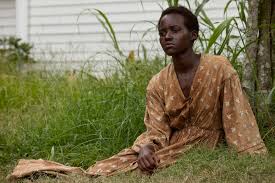 |
| collider.com |
Another inspiring performance came from supporting actress Lupita Nyong'o - and if she does receive an award for Best Supporting Actress then I can't think of anyone who deserves it more - it would be a travesty. She too, portrays the utter brokenness of a woman so tragically well. The moment that wins it for me, was prior to the most horrific scene I've ever witnessed, when she returns from the nearby farm, with soap. She is so passionately disgusted with herself, with the way she looks, the way she smells. She no longer sits in fear of her master but throws her disgust towards him. She WILL be clean. When she begs Soloman to take pity on her and kill her, as she herself is not strong enough to commit suicide, we are thrown alongside her into the rivers of despair. The current is too strong for us to bear. Solomon refuses to help her, but that does not mean we do not shed a tear.
What follows, is as I said, one of the most horrifying things I have seen. Not just because it is graphic violence - but because I know that it actually happened. That a white man held his whip and laughed as he did this to his slaves. That he did this, then went inside to his sons and daughters and they laughed too, as others begged for their lives and wept for others. Perhaps picturing this made it worse for me. It was when Solomon raised the whip himself, that I was angry. I realised after a while that he accepted the whip so that he could hit her gently, to save her pain. The violence that follows was something I could scarcely open my eyes to. Solomon is forced to whip her harder, opening her skin deep causing blood to splatter across the ground as Patsey's eyes rolled back in pain. Again, I could not, CAN NOT, believe that humans are capable of doing this, to other humans. McQueen gives us all time to consider this, to witness the suffering, to question it, to be shocked by it. His camera shot is not moving away. It's clever work.


There were other performances that deserve a mention also. Paul Giamatti appears out of character as a heartless slave buyer who splits up a mother from her children. Benedict Cumberbatch's appearance as a kindly slave owner - an oxymoron if ever there was one - was a role that at least gave an inch of humanity back to history. Although, when he failed to help Solomon, knowing full well he was a free man, a violinist and that he did the right thing is standing up to his jealous and pubescent overseer (Paul Dano). Here, Solomon at least gained some strength and we thank Ford for that.
 |
| jsonline.com |
Then, Michael Fassbender, meaner and more volatile than we've ever seen him. The moment that showed his ability for me, was when he approached Solomon in the middle of the night about his betrayal of letter-writing. We are afraid of what he will do, as his unpredictable and extreme nature have become so apparent to us. I found my heartbeat raising as I watched. Then came Brad Pitt as the travelling handyman, whom Solomon confided in and learned to trust. It is the ultimate test of his humanity, once we find out he does not agree with slavery, when Solomon tasks him with contacting his friends whom he knows will free him. After thinking about it long and hard, as Solomon stares deeply into the void of desperation, he agrees. And thank God he does.
 |
| moeatthemovies.com |
The end of the film is almost something we'd stopped believing would happen - although the title of the film tells us it will. Steve McQueen's shots of lingering despair, outpours of emotion and pain and the crushing of hope every time it springs from the ground, leave us paralysed from optimism. When a carriage pulls up and a man steps out and calls out 'Solomon Northup' we almost expect him to walk away again. Instead, another man gets out of the carriage and Solomon recognises him immediately as his friend, running to him. The men take a hold of him, he climbs into the back of the car and Solomon is driven away to safety, as Patsey falls to the floor in despair of losing him. Bass had kept his promise, he had alerted his friends, and his friends had saved him.
The final scene is one, not anyone could keep a dry eye for. As Solomon meets his wife, two children AND a son-in-law and grandchild, we witness tears drop down the shoulders of his daughter as he holds her close. Not one of them asks what happened, they are all stunned into silence and emotion at the return of their father after 12 years without him.
So, as sentimental as you may expect a tale of slavery and freedom to be, it has it's moments that set it aside from other films alike. It forces you to think, to witness - it teaches you not to ignore. It also has some truly exceptional cinematography. Steve McQueen said that all of us should know about slavery. I believe he is right. Solomon Northup's tale, is true - but it is just the beginning. I don't recommend it to anyone with a nervous disposition or light stomach but to anyone who WANTS to see what rich Westerners did to slaves not so long ago - then I advise you have a watch.
 |
| A FREE MAN AND HIS FAMILY - urbanq8.com |
 |
| SLAVES FOR SALE - davethenovelist.com |
 |
SLAVE OWNER FORD - telegraph.co.uk
 |
| IF A SLAVE DEFIES HIS 'MASTER' - coolercinema.blogspot.com |
|
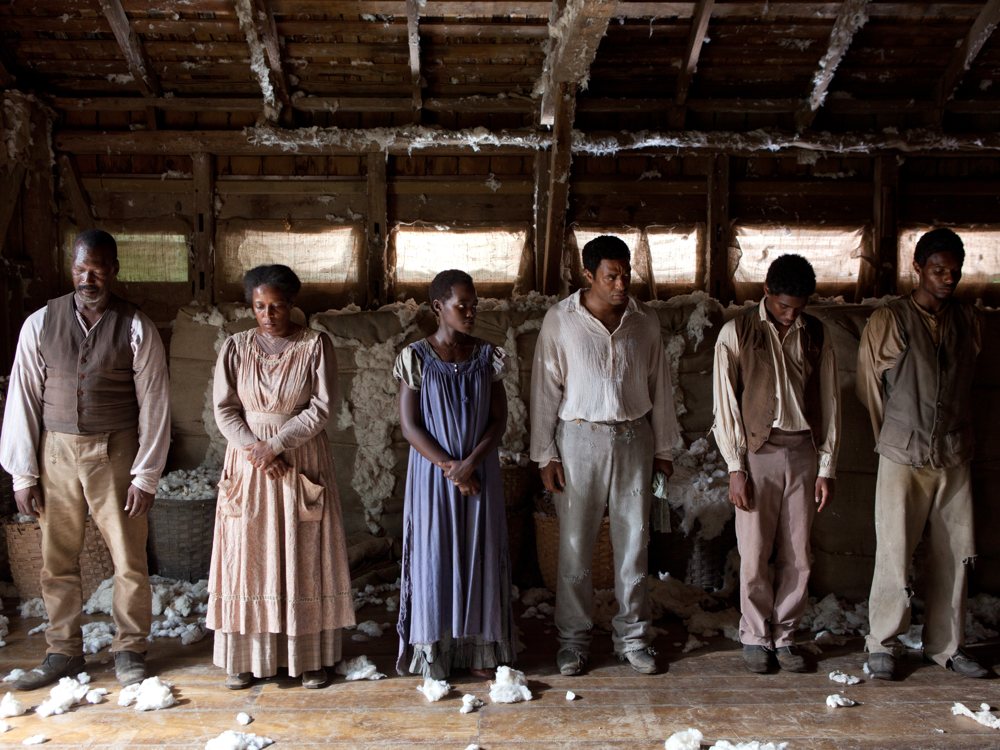 |
| COTTON FARM - bfi.org.uk |
 |
| TAKING ONE CHANCE AT FREEDOM - facebook.com/12yearsaslave |
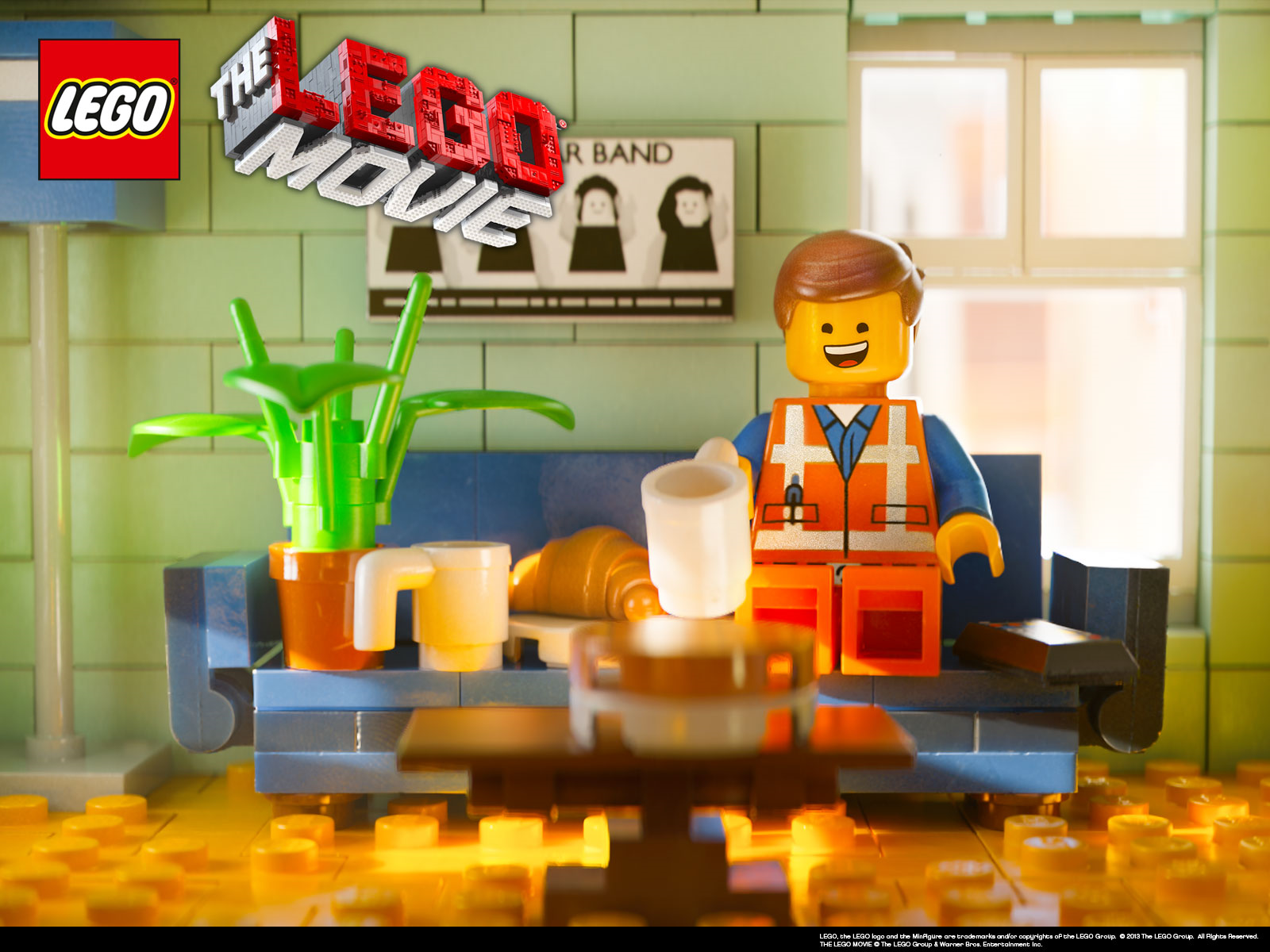 The second scene was among my favourites of the film. The concept was still new for us and the film-makers gave us much to laugh about. Taking a shower in tiny plastic buttons and lines of plastic books and everything you imagine a lego house to have. Rounded off with a tiny plastic mug attached to our tiny plastic protagonist's hand. Perfect right?
The second scene was among my favourites of the film. The concept was still new for us and the film-makers gave us much to laugh about. Taking a shower in tiny plastic buttons and lines of plastic books and everything you imagine a lego house to have. Rounded off with a tiny plastic mug attached to our tiny plastic protagonist's hand. Perfect right?














